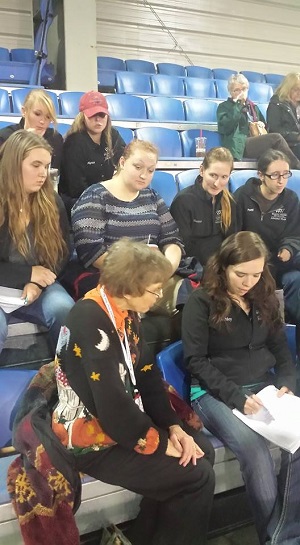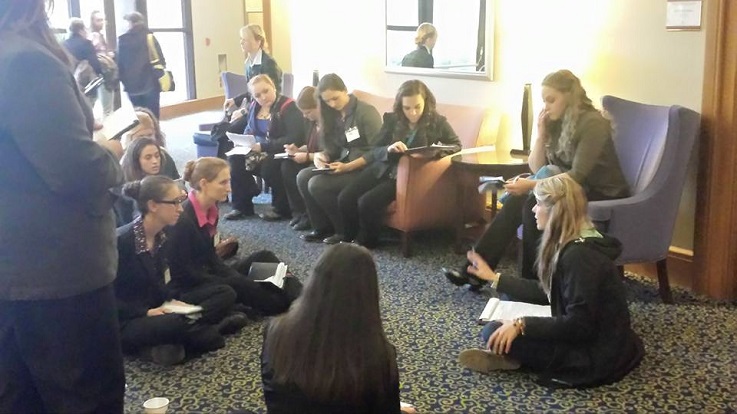What is it like to be a champion?
Just ask the William Woods University Equestrian Judging team.
With two competition teams and seven learner judges, William Woods University had a big presence at the U.S. Nationals Arabian/Half Arabian Championships in Tulsa this past month. These two teams earned the title of National Champion, as well as a fourth place honor, and many individual honors at the competition.
 Chrissie Wellington is a former triathlete and four-time Ironman World Champion. In her 10 Ways to act like a champion for CNN, Wellington writes, “you don’t become a champion, you act like one.”
Chrissie Wellington is a former triathlete and four-time Ironman World Champion. In her 10 Ways to act like a champion for CNN, Wellington writes, “you don’t become a champion, you act like one.”
“True champions demonstrate the behaviors and habits of a champion daily. It’s the manner in which they try to achieve their potential that defines them as champions, rather than their outcomes,” writes Wellington.
Students come to William Woods University in Fulton, Missouri from all over the country for its rigorous and elite equestrian programs. Whether they are pursuing a bachelors in equestrian science, studies, administration, or something else and pursue riding, judging or showing as an extra-curricular know that excellence is expected and pursued.
Marissa Boster from Team A said, “We were happy because we worked so hard to get there, and it paid off for both teams. Each team had great achievements in different areas, and every person was grateful for what she achieved, whether they were on the winning team or the fourth place team.”
“To come back as the overall national champion was breathtaking. I am so proud of what the team accomplished and hope that we can keep the ball rolling from here,” said Abigail Peterson from Team B.
As Wellington writes, champions lean on others.
“The word ‘competitor’ is taken from a Latin root meaning to ‘seek together’ – with help I learned to dig deeper and discover reserves I never knew existed,” Wellington said.
“I think what makes me most proud is the amount of support everyone received, not only from the coaches, but from other students, teammates, and other professors on campus,” Boster said.
“It was incredible to see everyone involved do so well. For me, the acceptance, love, and support I received from people I had just met at the beginning of the semester was astounding. That is what made the teams do so well — everyone acknowledging that every person had weaknesses and strengths; however, everyone encouraging each other to do the best they could,” said Ashley Larkins from Team A, “Everyone treated it as one big team, and everyone treated the success as everyone’s success.”


